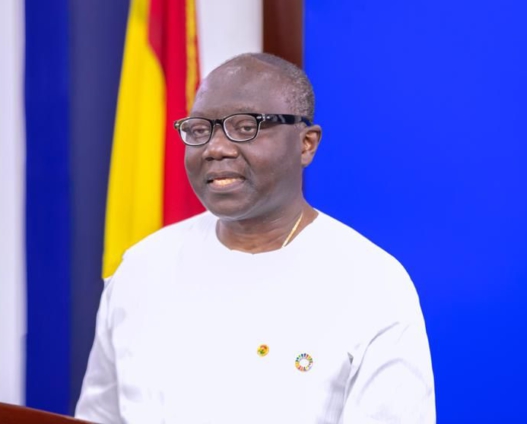Foreign holdings of Ghana’s domestic debt is expected to fall to below 10% by the end of the year, Bloomberg has projected.
This it says had piled pressure on the Ghana cedi which is seeing signs of improvement in value against the US dollar in recent times.
Until this year foreign investors held an unusually large slice of domestic debt in Ghana — close to 40%.
Commercial banks also hold about a third of domestic debt and some derived as much as between half and three-quarters of their interest income from government securities in 2021, according to Fitch, giving them a ringside seat in any debt repayment negotiations.
“There is no more stigma around defaulting or restructuring, and this is quite unusual in the context of emerging markets history. It is part of the natural economic cycle,” said Yerlan Syzdykov, global head of emerging markets at Amundi SA, Europe's biggest money manager which is a member of the Ghana bondholders committee.
He added that “what worries me is that loss of stigma of default.”
Ghana has also borrowed to fund infrastructure and social programmes including free senior high school education and a national health service. But critics argue it did too much too quickly at too high a borrowing cost.
The government invested heavily in its power sector, key to industrialisation, largely financed by external debt.
“By doing it that way — yes, you build an electricity grid, but you also take yourself to the brink of default, as Egypt has done, and as Kenya is not that far away from, as Pakistan has done,” said Charles Robertson, Chief Economist at Renaissance Capital.
The World Bank projects the country’s total public debt will hit 105% of GDP by the end of 2022.
Ghana needs to repay $3.5 billion in loans in 2023
The country also needs to repay $3.5 billion in loans and bonds next year, according to data compiled by Bloomberg, a little more than it is asking for from the International Monetary Fund (IMF).
The IMF had by the end of October already disbursed a record $142.5 billion to member nations this year. That is almost double the overall outstanding balance at the end of 2019, just before the Covid-19 pandemic.
“China is slowing down, the US is slowing down, the EU is slowing down,” Kristalina Georgieva, IMF Managing Director, said in Berlin on November 29, 2022.
“That hurts developing countries, but they suffer also from high interest rates and from currency depreciation”.
“A lot of the problems that we see tend to be quite confined to the country,” said Jason Tuvey, senior emerging markets economist at Capital Economics. It doesn't cause a huge spillover to the rest of the world.”
Ghana is a regular client of the IMF and this is its 17th request to the fund.
Latest Stories
-
LUV FM High Schools Debate: St. Louis Girls and Oppong Memorial emerge victors on Day One contest
54 minutes -
Re: Forestry Commission refutes report of illegal fuel station in forest reserve
58 minutes -
Scaling climate solutions: GCIC announces 7th annual symposium on innovation
59 minutes -
GRNMA strike: Show nurses respect – Ranking Member, Health Committee tells gov’t
2 hours -
Climate change & sustainability: Kenneth Awotwe Darko champions equitable forest finance at Hamburg Sustainability Conference 2025
2 hours -
Hindsight: GPL end-of-season honors
2 hours -
Education Minister inaugurates CIHRM Council
3 hours -
‘Dumsor levy at 8% is midnight robbery’ – Oppong Nkrumah descends on gov’t
3 hours -
‘A massive win for Vision FC’ – Nana Agyemang on win over Kotoko
3 hours -
Nurses’ strike continues as Health Ministry fails to reach agreement with GRNMA
3 hours -
GSTEP empowers over 30k students with STEM skills, government support needed
3 hours -
GPRTU suspends planned strike over GH₵1 fuel levy after meeting with Energy Ministry
4 hours -
GH₵1 fuel levy: Gov’t should conclude negotiations on the power purchase agreement – Minority
4 hours -
GFA slaps Berekum Chelsea Coach and players with GHC 1,000 fines for misconduct, suspends penalties
4 hours -
Chamber of Aquaculture, UK’s DEFRA train women farmers in aquaculture biosecurity
4 hours

